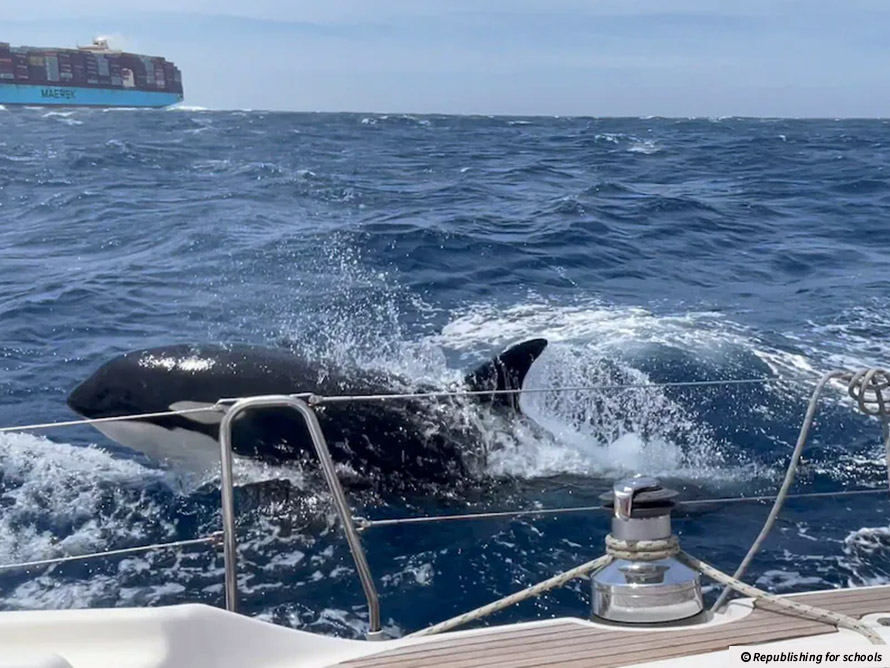Is this how animals get revenge? Experts disagree on why the world's top marine predator is attacking boats. But the trend may be spreading to other populations in Europe.
Killer whale White Gladis leads war on yachts
 Maritime mischief: There was a 298% increase in orca-boat interactions from 2020 to 2023.
Maritime mischief: There was a 298% increase in orca-boat interactions from 2020 to 2023. Glossary
Offspring - Children.
Extinction - Completely dying out.
